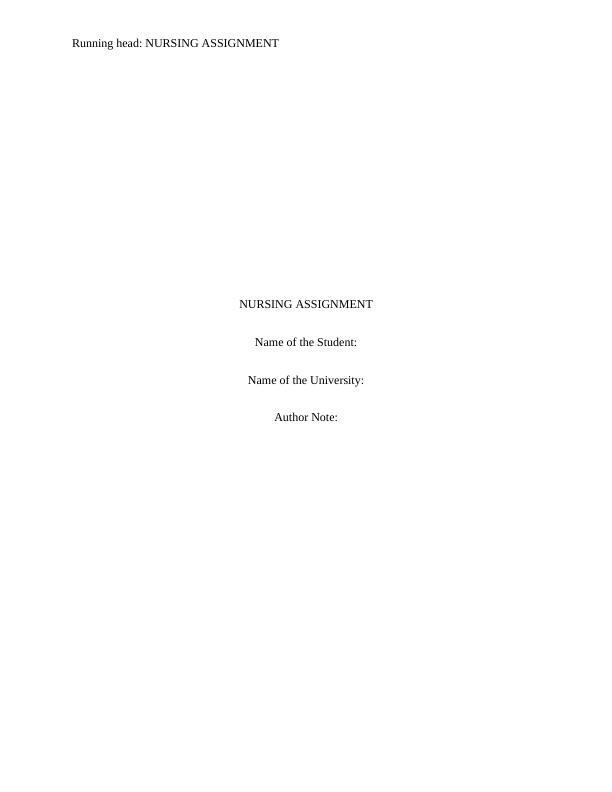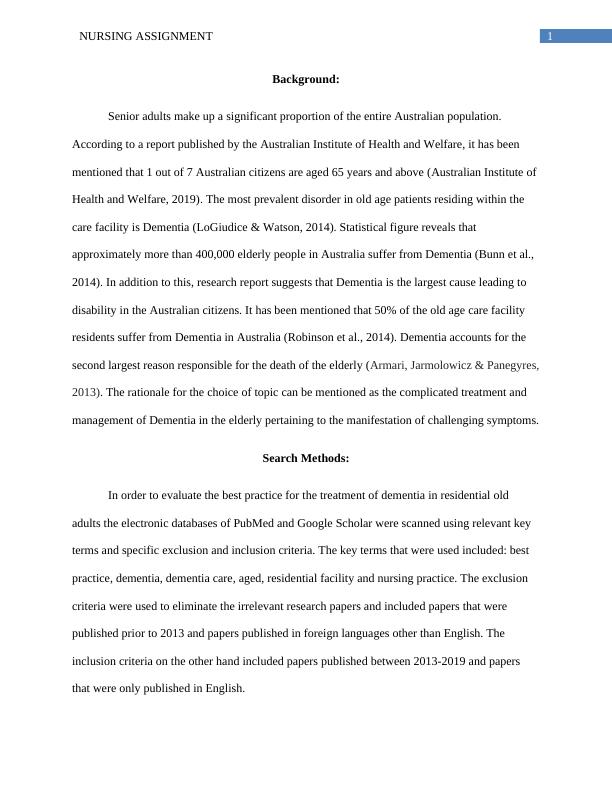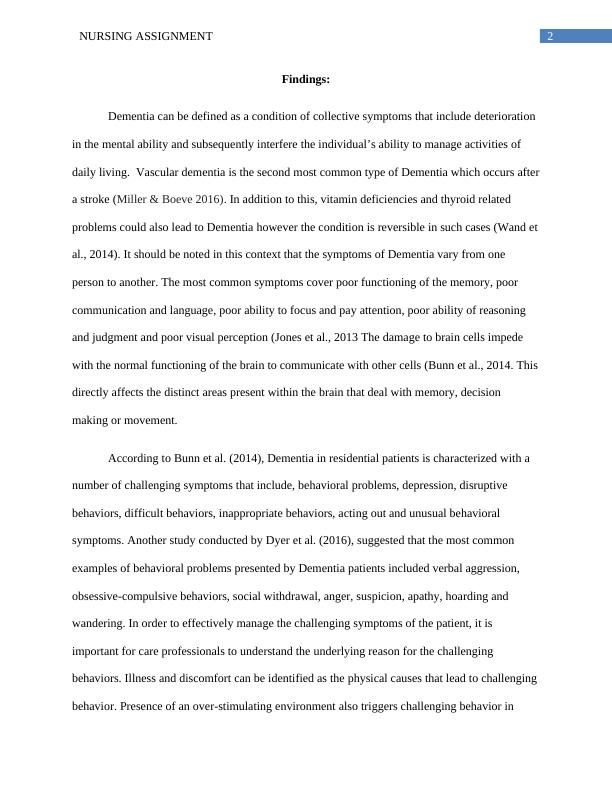Understanding Dementia in Senior Adults: Challenges and Best Practices in Nursing Care
Added on 2023-04-24
10 Pages2552 Words247 Views
End of preview
Want to access all the pages? Upload your documents or become a member.
Wellness Program for Dementia Patients
|6
|919
|184
Best Practices for Imparting Holistic Care to Dementia Patients
|8
|2126
|80
Therapeutic Interventions for Improving Cognitive Health in Elderly Patients
|28
|5655
|85
Dementia Care Synopsis Overview of Dementia
|7
|2937
|60
Effectiveness of Mindfulness-Based Therapeutic Interventions on Cognitive Functioning and Psychological Health Outcome of the Elderly
|15
|3303
|339
Nursing Assignment for Alzheimer's Dementia Patient
|12
|3502
|265


